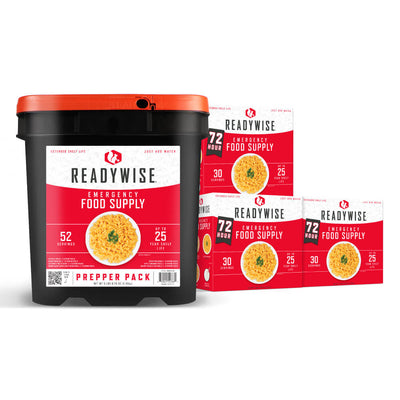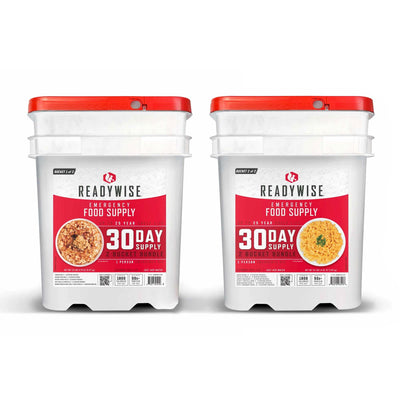A Guide to Vegetarian Emergency Food Storage
If you are a vegetarian, chances are you are already quite resourceful about obtaining adequate nutrition from non-meat sources. Preparing for emergencies requires the same kind of savvy, but with extra effort because fresh vegetables and fruits have a short shelf life. The foods that you choose for an emergency food kit should require no refrigeration, minimal or no preparation or cooking, and optimally little or no water. Every emergency food kit should include a minimum of one gallon of water per person per day, so it is acceptable to store some foods that require water for preparation. Here are a few tips to ensure that you will have enough vegetarian food on hand, starting with proper storage techniques.
Emergency Food Kit Preparation Tips
• Proper storage: Buy foods with long shelf lives in bulk and store them in air-tight, BPA-free food storage containers. Place silica packets inside the containers to prevent moisture issues. Clean all food containers with soap and water before filling them and storing them in your pantry. Do not stack containers too high, especially if you live in an area that is prone to natural disasters. Select a space that is cool, dark, and dry with a regulated temperature above 32 degrees and below 70 degrees Fahrenheit.
• Canned foods: You may never eat canned foods in normal situations, but during an emergency, you will be thankful you bought them due to the convenience. Many canned foods can be eaten right out of the can, don’t require cooking, water, or special preparation. Purchase vegetables, fruit, beans, tuna fish, sardines, pasta, and juice. lt is healthier to buy low-sodium or low-sugar products, such as fruits with no added sugar in light syrup. While more expensive, there are organically grown fruits and vegetables available in cans. Remember to pack several manual can openers in your emergency food kit.
• Protein: You don’t eat meat, so you already know how to obtain protein from alternative sources. However, some protein-rich foods do not have a long shelf life. Good options for emergency planning include beans, lentils, corn, milk (all canned), powdered whey milk, powdered eggs, tuna fish, vegan or meat-free jerky, nuts, seeds, and nut butters. Protein powder is another excellent source and easy to store. You can mix this into shelf-stable pudding or add water and canned juice to create a tasty, nutritious drink. Lactose-free, gluten-free, and rice-based protein powders are available for those with dietary restrictions. Two protein shakes and a serving of tuna or beans provides sufficient protein for a day.
• Freeze-Dried Foods: Available in an assortment and variety of bulk sizes, sealed, individual Mylar pouches of freeze-dried fruit can last up to 20 years. They can be eaten as a snack or mixed with stable-shelf foods such as pudding, caramel sauces, applesauce, and cereals to boost the overall taste, calorie, and nutritional content. Vegetables are also available in an assortment of individual packets in different bulk sizes, with a shelf life of up to 25 years.
















































































